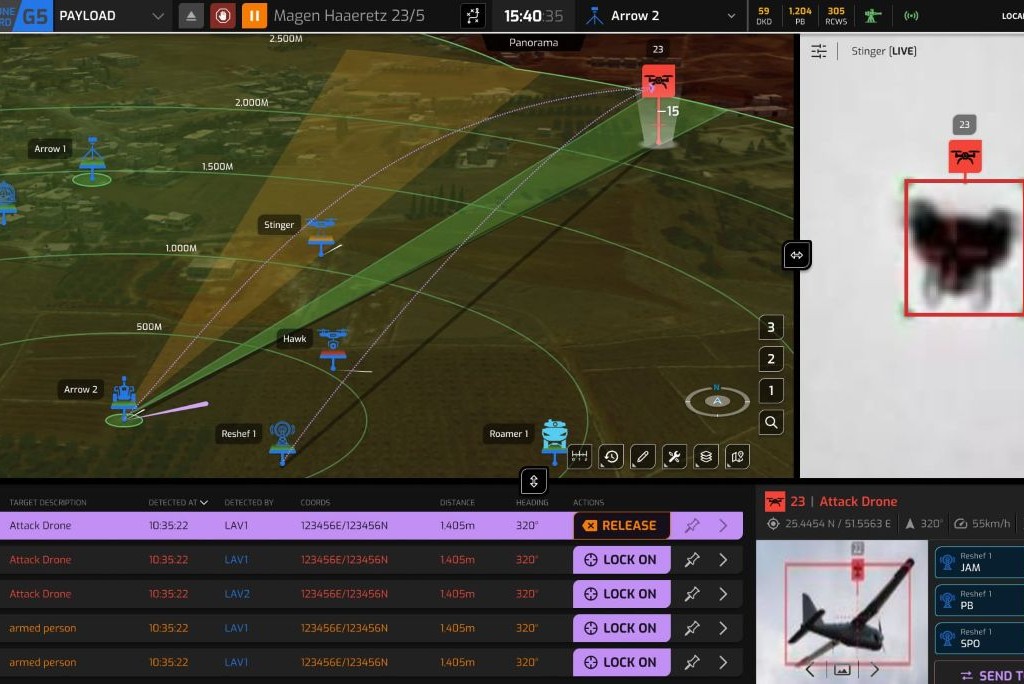A New Alliance in Drones: Leonardo and Baykar Explore Synergies
In the dynamic realm of drone technology, global partnerships are becoming increasingly important as companies strive to innovate and expand their market presence. Recently, a notable partnership is in the works between Italy’s Leonardo S.p.A. and the Turkish drone manufacturer Baykar. This collaboration could bring together Leonardo’s advanced electronics and radar technology with Baykar’s acclaimed drone platforms, marking a significant development in the defense technology landscape.
Recent Developments
The discussions between Leonardo and Baykar have gained traction following a visit by Leonardo’s CEO, Roberto Cingolani, to Baykar’s facility in Turkey. Here, he engaged with company management and explored their impressive lineup of drones, notably the Bayraktar TB2. This particular drone has earned a reputation on the battlefield, having played crucial roles in recent conflicts, including those in Libya, Nagorno-Karabakh, and Ukraine. The visit signals both companies’ interest in deepening ties and leveraging each other’s strengths.
The Potential for Technological Synergy
Leonardo and Baykar are both recognized leaders in their respective segments of the drone market. Baykar has rapidly established itself as a dominant player, while Leonardo is known for its sophisticated drone technologies, including the Falco variants, which have been sold to various international clients. Moreover, Leonardo is a key partner in the Eurodrone program alongside Spain, France, and Germany, which seeks to develop a next-generation unmanned aerial system.
The synergy between the two companies is primarily centered on the integration of Leonardo’s sophisticated airborne electronics and sensors. For instance, the Gabbiano electronically scanned radar, a cutting-edge technology that will be utilized in the Eurodrone, could potentially enhance the capabilities of Baykar drones. According to a Leonardo source, there is a strong belief that strategic tech collaboration can pave the way for commercial opportunities similar to existing partnerships, such as that with Rheinmetall for next-generation military vehicles.
Leonardo’s Broader Strategy
Cingolani’s vision for Leonardo seems to center on developing collaborative strategies that not only advance technology but also drive commercial success. The groundwork laid by previous collaborations suggests a future where Leonardo’s expertise in electronics and surveillance can be seamlessly merged with Baykar’s robust drone platforms. This approach echoes Leonardo’s recent venture with Rheinmetall, where the two companies are working together to produce new fighting vehicles for the Italian army, combining innovative electronics with Rheinmetall’s established platforms.
Baykar’s Expansion
The proposed partnership comes on the heels of Baykar’s recent acquisition of Italy’s Piaggio Aerospace, marking a significant milestone for the Turkish company. This move, which ended Piaggio’s six-year receivership, showcases Baykar’s ambition to broaden its technological portfolio and strengthen its presence in Europe. By aligning with Leonardo, Baykar could augment its technological capabilities further, solidifying its status as a key player in the global drone market.
The Future of Drone Technology
The space of unmanned aerial vehicles is ever-evolving, with nations and companies racing to develop advanced technologies that meet modern warfare demands. The cooperation between Leonardo and Baykar signifies an important step toward the integration of innovative technologies into drone design and function. As these discussions progress, the defense sector will be watching closely to see how this strategic partnership unfolds and what it might mean for the future of drone operations in conflict zones and beyond.
In summary, the potential collaboration between Leonardo and Baykar represents more than just a business partnership; it embodies a strategic alignment that could enhance technological capabilities while addressing the rising demand for advanced defense solutions globally. As the drone industry continues to innovate, such alliances will likely shape the future of aerial warfare and surveillance.





